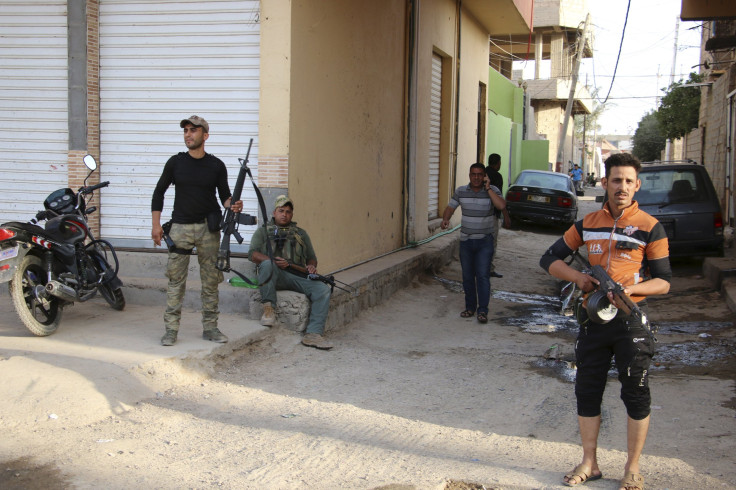US To Send Rockets To Iraq To Counter ISIS Car Bomb Strategy

U.S. officials said on Wednesday that Washington was planning to ship 1,000 anti-tank rockets to the Iraqi military to help them counter the suicide bomb vehicles used by the Islamic State group. The need for the new equipment was underscored when the city of Ramadi fell to the militant group on Sunday, in an attack that saw ISIS militants use waves of suicide car bombings over several days to clear a path for fighters to take the city.
The weapons are expected to arrive in early June, the New York Times reported.
Officials from the administration of U.S. President Barack Obama admitted that the fall of Ramadi was a major setback, but insisted it was a temporary one. “You’d have to be delusional not to take something like this and say, what went wrong and how do you fix it?” an anonymous State Department official said, according to the Times. “This is an extremely serious situation.”
ISIS’ offensive into Ramadi saw the group use 30 car bombs, including about 10 massive ones that “took out entire city blocks,” the official added.
After the city’s capture, Iraq’s Prime Minister Haider al-Abadi sent over 3,000 Shiite fighters to join the country's army troops and local Sunni militias stationed in the area to push back ISIS.
Other U.S. weapons shipments that Baghdad was expecting have been delayed, prompting Abadi to seek military aid from other countries. On Wednesday, he visited Russia to request further military assistance, in a meeting that focused on "the development of relations between the two countries, mainly expanding the military and security cooperation, and support for Iraqi forces in the face of terrorism," according to Latin American news site Telesur.
Russia had previously supplied Iraq with weapons, including fighter jets, helicopters and small arms. Iraq is also reportedly considering China and Iran as suppliers.
As part of the existing U.S. program to arm and train Sunni militants in Iraq, over 7,000 fighters have been retrained, but their role is reportedly unclear. The fall of Ramadi, where Iraq’s security forces rapidly crumbled under the sustained ISIS attack, has raised further concerns about the mission.
In the coming days, U.S. and Iraqi forces hope to regroup and consolidate the retreating Iraqi forces, many of whom have been physically wounded or psychologically traumatized by multiple high-magnitude car bombs.
In the longer term, the incident has served as a call for Washington to adopt new strategies in the battle against ISIS. One option the administration is considering is training a group of special Iraqi Special Forces to help American bombing missions, according to the Times.
© Copyright IBTimes 2024. All rights reserved.











